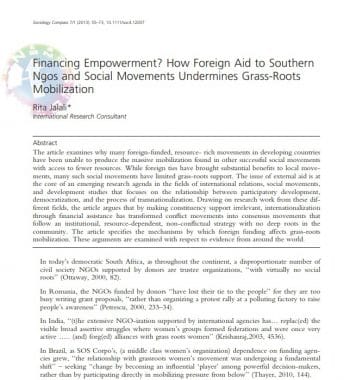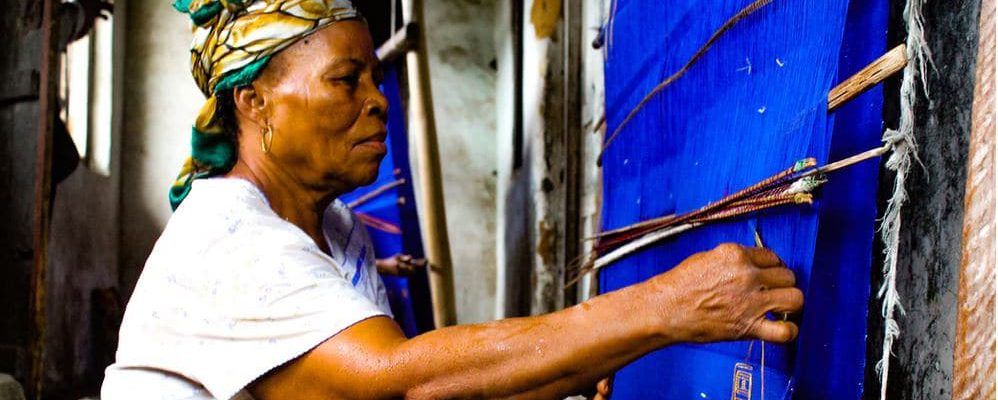
Policy highlights:
- Why have many foreign funded, resource-rich movements been unable to produce the massive mobilization found in other successful social movements that have access to fewer resources? This article examines the mechanisms by which foreign funding affects grassroots mobilization and highlights the unintended effects of donor interventions when domestic groups rely on those outside their constituencies.
- The resource base of a social movement affects its ability to mobilize the masses. Foreign funding influences this ability through a channelling effect: foreign funded groups dominate and force out more representative organizations and alter the composition of civil society—influencing the representation, issues discussed, strategies pursued and solutions introduced.
- Three broad mechanisms of foreign funding affect grassroots mobilization:
- Resource dependence through fear of loss of funds, ‘projectitis disease’ (groups become preoccupied with “doing” leaving insufficient space for influencing), fragmentation, professionalization and irrelevance of domestic alliances.
- Domestic laws including repressive legal measures that govern the NGO sector in many countries, especially in relation to foreign funding.
- The free-rider problem, in which social movements can obtain resources without involving a large membership presence. This introduces an increase in the so-called ‘consensus movements’.
- Consensus movements’ dependence on foreign funding can have implications. These include: 1) less legitimacy within the country, 2) self-sustainability that is difficult to maintain when depending on the changing priorities of donors, 3) movements that are less able to develop new strategies due to constraints by the institutions they depend on, 4) the threat of competition by other movements which have a large mass following and 5) a lack of mass support can weaken the ability to monitor implementation.
- Policymakers should keep in mind that local support of movements is key and domestic mobilization should precede outside the intervention rather than follow it. Policymakers should remember that foreign funding moves beyond supporting the individual movements: donors set the agenda for the movements and give these funded organizations a much larger voice than their population might allow—which can disrupt democracy. Therefore, policymakers should look towards the long-term consequences of funding.








